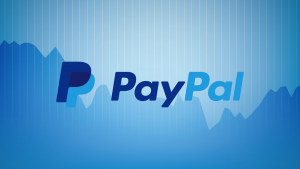 In the US and Western Europe, e-wallet service PayPal is immensely popular and used daily by most people. For those of you who are unaware of its purpose, PayPal is basically a quick, easy and secure way to send or hold money. For example, you can connect a bank account or a debit card to it, and then use PayPal to pay for stuff online without having to input your information every single time. As you know, many sites request your credit card number, your full name, your security number, your billing address, your postal code, your mother’s maiden name, your childhood pet’s name, the name of that girl you had a crush on in fifth grade, but were too embarrassed to tell her even though she was always super nice to you and probably would’ve said yes, but then you had to switch schools and next time you met her she was dating a complete douchebag… You get the drill. The point I was trying to make is that this is a lot of information to input every single time, and besides, if just one of the sites you shop from gets hacked, all of that information leaks out and you’ve got people with access to your credit cards.
In the US and Western Europe, e-wallet service PayPal is immensely popular and used daily by most people. For those of you who are unaware of its purpose, PayPal is basically a quick, easy and secure way to send or hold money. For example, you can connect a bank account or a debit card to it, and then use PayPal to pay for stuff online without having to input your information every single time. As you know, many sites request your credit card number, your full name, your security number, your billing address, your postal code, your mother’s maiden name, your childhood pet’s name, the name of that girl you had a crush on in fifth grade, but were too embarrassed to tell her even though she was always super nice to you and probably would’ve said yes, but then you had to switch schools and next time you met her she was dating a complete douchebag… You get the drill. The point I was trying to make is that this is a lot of information to input every single time, and besides, if just one of the sites you shop from gets hacked, all of that information leaks out and you’ve got people with access to your credit cards.
PayPal, on the other hand, eliminates both the hassle of having to input all of that info over and over again (all you need to do to pay with PayPal is to enter your username and password) and removes the risk of a potential leak since, well, PayPal has never been hacked before. Like, ever. So if a site you shop at ever does get hacked, the most the hackers will ever get from you will be your e-mail, with the rest of the information kept safely within PayPal’s secure servers. And if that wasn’t enough, you could also just store money in there and pay through PayPal without having a credit card or a bank account at all – if someone sends you money, you can hold it in there forever (hence the e-wallet moniker). That’s awesome, right? It’s no wonder people in the West are using it all the time! But, surprisingly, in the Balkans things aren’t nearly as rosy.
First of all, not a whole lot of people use PayPal in the first place. In the Balkans, the common consensus is that services which store your credit card information (or even worse, your bank account) are fraudulent, and even though that couldn’t be further from the truth, most people from the region refuse to use them. As a result, many services and online shops don’t provide the service, even if they do in other regions. A few good examples are the PlayStation Store and Google Play, which accept payments through PayPal in the West, but deny this option to Balkan nations. Additionally, while most UK Casino Sites accept deposits via PayPal, most online casinos in the Balkans don’t really provide that opportunity and still require credit cards, which, combined with the aforementioned mistrust for sites that store this kind of information, may be why online casinos aren’t as popular here as they are in, say, the UK.
Of course, just because a lot of people don’t use PayPal doesn’t mean no one does. Many more tech-savvy people have PayPal accounts for ease of payments, and similarly, a lot of websites do offer the opportunity to pay with PayPal to the few customers who prefer that method. So things are gradually getting better – here’s hoping they’ll keep improving for us PayPal lovers!
